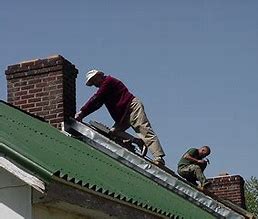Investing in a new roof is a significant decision for homeowners. Beyond considering costs, styles, and materials, it’s essential to understand the warranties that accompany roofing products. A robust warranty can save you thousands of dollars and prevent unexpected headaches in the long run. This guide aims to help you understand roofing warranties better, ensuring you make informed decisions.
 Types of Roofing Warranties
Types of Roofing Warranties
- Manufacturer’s Material Warranty: This covers defects in the roofing material itself, such as shingles or tiles. It does not typically cover labor or other components like underlayment or flashing.
- Workmanship Warranty: Offered by roofing contractors, this covers installation errors. Duration can vary, but many reputable contractors offer long-term or even lifetime warranties on their workmanship.
- Full System Warranty: This is a comprehensive warranty that covers both materials and labor. It often also includes other components of the roofing system.
- Manufacturer’s Extended Warranty: Some manufacturers offer extended warranties that can cover both materials and labor, sometimes requiring an additional fee.
Key Considerations
- Duration: Warranties can range from short-term (10-20 years) to lifetime. Understand the length and what “lifetime” actually implies.
- Transferability: If you sell your home, can the warranty be transferred to the new owner? This can be a selling point.
- Prorated vs. Non-prorated: A prorated warranty decreases in value over time. In contrast, non-prorated warranties offer consistent coverage throughout the warranty period.
- Exclusions and Limitations: What isn’t covered? Some warranties may not cover damages from “acts of God” like hurricanes or earthquakes. Others might exclude specific types of damage or wear.
- Maintenance Requirements: Some warranties require periodic maintenance to remain valid. Ensure you’re clear on any such stipulations.
- Claim Process: Understand the steps involved in making a claim. Is there a time limit for filing a claim after noticing a defect? Are there any fees involved?
Tips for Homeowners
- Read Carefully: As with any legal document, read the warranty thoroughly. Ask for clarifications on terms you don’t understand.
- Keep Records: Store a copy of your warranty, installation receipts, maintenance records, and any other related documentation in a safe place.
- Routine Inspections: Regularly inspect your roof or hire professionals to do so. This can help in spotting potential issues before they escalate.
- Hire Reputable Contractors: Ensure that the contractors you hire are certified and have positive reviews, especially if their workmanship affects your warranty’s validity.
Conclusion
Roofing warranties are essential tools to protect your investment. By understanding their nuances and staying proactive about your roof’s care, you can ensure the longevity of your roofing system and maximize the benefits of your warranty. Always consult with professionals and ask questions to ensure you’re fully informed before committing.






